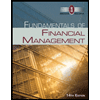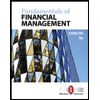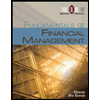Problem 24-05 Given the following information, construct the firm's cash budget for the given months and answer the questions. ■ All sales are for credit and collections occur after 30 days. ■ A $110,000 Treasury bill matures in March. Monthly fixed disbursements are $15,000. ■ Variable disbursements are 45 percent of sales and occur one month prior to sales. (Variable cash disbursements are given for April.) ■ A tax payment of $20,000 is due in April. ■ A payment of $40,000 is to be received in February. ■The initial cash is $10,000. ■ The minimum required cash balance is $9,000. Enter the disbursements values and required level of cash as positive values. Use a minus sign to enter cash outflows, shortage of cash values, negative beginning and ending cash positions, if any. Do not leave any cells blank. If the answer is zero, enter "0". January February March April Sales Cash sales $ $ $ 200,000 $ 250,000 $ 200,000 $ $ $ Collections $ $ $ Other receipts $ $ $ Total cash receipts $ $ $ Variable disbursements $ $ $ $ 90,000 Fixed disbursements $ $ $ $ Other disbursements $ $ $ $ Total cash disbursements $ $ $ $ Net change during the $ $ $ $ month Beginning cash $ Ending cash $ Required cash $ Excess (shortage) of cash $ 10,000 $ $ $ $ $ $ 9,000 $ $ $ $ $ $ a. At the end of March, what are the firm's (1) accounts receivable, (2) marketable securities, and (3) accounts payable? Assume that the variable disbursements for April are owed at the end of March. Assume that excess cash may be invested in short-term securities. Round your answers to the nearest dollar. Accounts receivable: $ Marketable securities: $ Accounts payable: $ b. What is the maximum amount that the firm may have to borrow? Round your answer to the nearest dollar. Enter your answer as a positive value. $ ✓ associated with tax payments, which would alter the cash c. If the firm used accelerated depreciation instead of straight-line depreciation, how would that affect the cash budget? Any tax benefits associated with using accelerated depreciation may affect -Select- budget.
Problem 24-05 Given the following information, construct the firm's cash budget for the given months and answer the questions. ■ All sales are for credit and collections occur after 30 days. ■ A $110,000 Treasury bill matures in March. Monthly fixed disbursements are $15,000. ■ Variable disbursements are 45 percent of sales and occur one month prior to sales. (Variable cash disbursements are given for April.) ■ A tax payment of $20,000 is due in April. ■ A payment of $40,000 is to be received in February. ■The initial cash is $10,000. ■ The minimum required cash balance is $9,000. Enter the disbursements values and required level of cash as positive values. Use a minus sign to enter cash outflows, shortage of cash values, negative beginning and ending cash positions, if any. Do not leave any cells blank. If the answer is zero, enter "0". January February March April Sales Cash sales $ $ $ 200,000 $ 250,000 $ 200,000 $ $ $ Collections $ $ $ Other receipts $ $ $ Total cash receipts $ $ $ Variable disbursements $ $ $ $ 90,000 Fixed disbursements $ $ $ $ Other disbursements $ $ $ $ Total cash disbursements $ $ $ $ Net change during the $ $ $ $ month Beginning cash $ Ending cash $ Required cash $ Excess (shortage) of cash $ 10,000 $ $ $ $ $ $ 9,000 $ $ $ $ $ $ a. At the end of March, what are the firm's (1) accounts receivable, (2) marketable securities, and (3) accounts payable? Assume that the variable disbursements for April are owed at the end of March. Assume that excess cash may be invested in short-term securities. Round your answers to the nearest dollar. Accounts receivable: $ Marketable securities: $ Accounts payable: $ b. What is the maximum amount that the firm may have to borrow? Round your answer to the nearest dollar. Enter your answer as a positive value. $ ✓ associated with tax payments, which would alter the cash c. If the firm used accelerated depreciation instead of straight-line depreciation, how would that affect the cash budget? Any tax benefits associated with using accelerated depreciation may affect -Select- budget.
Fundamentals of Financial Management (MindTap Course List)
14th Edition
ISBN:9781285867977
Author:Eugene F. Brigham, Joel F. Houston
Publisher:Eugene F. Brigham, Joel F. Houston
Chapter16: Working Capital Management
Section: Chapter Questions
Problem 10P: CASH BUDGETING Helen Bowers, owner of Helens Fashion Designs, is planning to request a line of...
Related questions
Question

Transcribed Image Text:Problem 24-05
Given the following information, construct the firm's cash budget for the given months and answer the questions.
■ All sales are for credit and collections occur after 30 days.
■ A $110,000 Treasury bill matures in March.
Monthly fixed disbursements are $15,000.
■ Variable disbursements are 45 percent of sales and occur one month prior to sales. (Variable cash disbursements are given for April.)
■ A tax payment of $20,000 is due in April.
■ A payment of $40,000 is to be received in February.
■The initial cash is $10,000.
■ The minimum required cash balance is $9,000.
Enter the disbursements values and required level of cash as positive values. Use a minus sign to enter cash outflows, shortage of cash values, negative
beginning and ending cash positions, if any. Do not leave any cells blank. If the answer is zero, enter "0".
January
February
March
April
Sales
Cash sales
$
$
$
200,000 $
250,000 $
200,000
$
$
$
Collections
$
$
$
Other receipts
$
$
$
Total cash receipts
$
$
$
Variable disbursements
$
$
$
$
90,000
Fixed disbursements
$
$
$
$
Other disbursements
$
$
$
$
Total cash disbursements
$
$
$
$
Net change during the
$
$
$
$
month
Beginning cash
$
Ending cash
$
Required cash
$
Excess (shortage) of cash
$
10,000 $
$
$
$
$
$
9,000 $
$
$
$
$
$
a. At the end of March, what are the firm's (1) accounts receivable, (2) marketable securities, and (3) accounts payable? Assume that the variable
disbursements for April are owed at the end of March. Assume that excess cash may be invested in short-term securities. Round your answers to the
nearest dollar.
Accounts receivable: $
Marketable securities: $
Accounts payable: $
b. What is the maximum amount that the firm may have to borrow? Round your answer to the nearest dollar. Enter your answer as a positive value.
$
✓ associated with tax payments, which would alter the cash
c. If the firm used accelerated depreciation instead of straight-line depreciation, how would that affect the cash budget?
Any tax benefits associated with using accelerated depreciation may affect -Select-
budget.
Expert Solution
This question has been solved!
Explore an expertly crafted, step-by-step solution for a thorough understanding of key concepts.
Step by step
Solved in 2 steps

Recommended textbooks for you

Fundamentals of Financial Management (MindTap Cou…
Finance
ISBN:
9781285867977
Author:
Eugene F. Brigham, Joel F. Houston
Publisher:
Cengage Learning

Fundamentals of Financial Management, Concise Edi…
Finance
ISBN:
9781305635937
Author:
Eugene F. Brigham, Joel F. Houston
Publisher:
Cengage Learning

Cornerstones of Cost Management (Cornerstones Ser…
Accounting
ISBN:
9781305970663
Author:
Don R. Hansen, Maryanne M. Mowen
Publisher:
Cengage Learning

Fundamentals of Financial Management (MindTap Cou…
Finance
ISBN:
9781285867977
Author:
Eugene F. Brigham, Joel F. Houston
Publisher:
Cengage Learning

Fundamentals of Financial Management, Concise Edi…
Finance
ISBN:
9781305635937
Author:
Eugene F. Brigham, Joel F. Houston
Publisher:
Cengage Learning

Cornerstones of Cost Management (Cornerstones Ser…
Accounting
ISBN:
9781305970663
Author:
Don R. Hansen, Maryanne M. Mowen
Publisher:
Cengage Learning

Fundamentals of Financial Management, Concise Edi…
Finance
ISBN:
9781285065137
Author:
Eugene F. Brigham, Joel F. Houston
Publisher:
Cengage Learning

Managerial Accounting
Accounting
ISBN:
9781337912020
Author:
Carl Warren, Ph.d. Cma William B. Tayler
Publisher:
South-Western College Pub

Managerial Accounting: The Cornerstone of Busines…
Accounting
ISBN:
9781337115773
Author:
Maryanne M. Mowen, Don R. Hansen, Dan L. Heitger
Publisher:
Cengage Learning